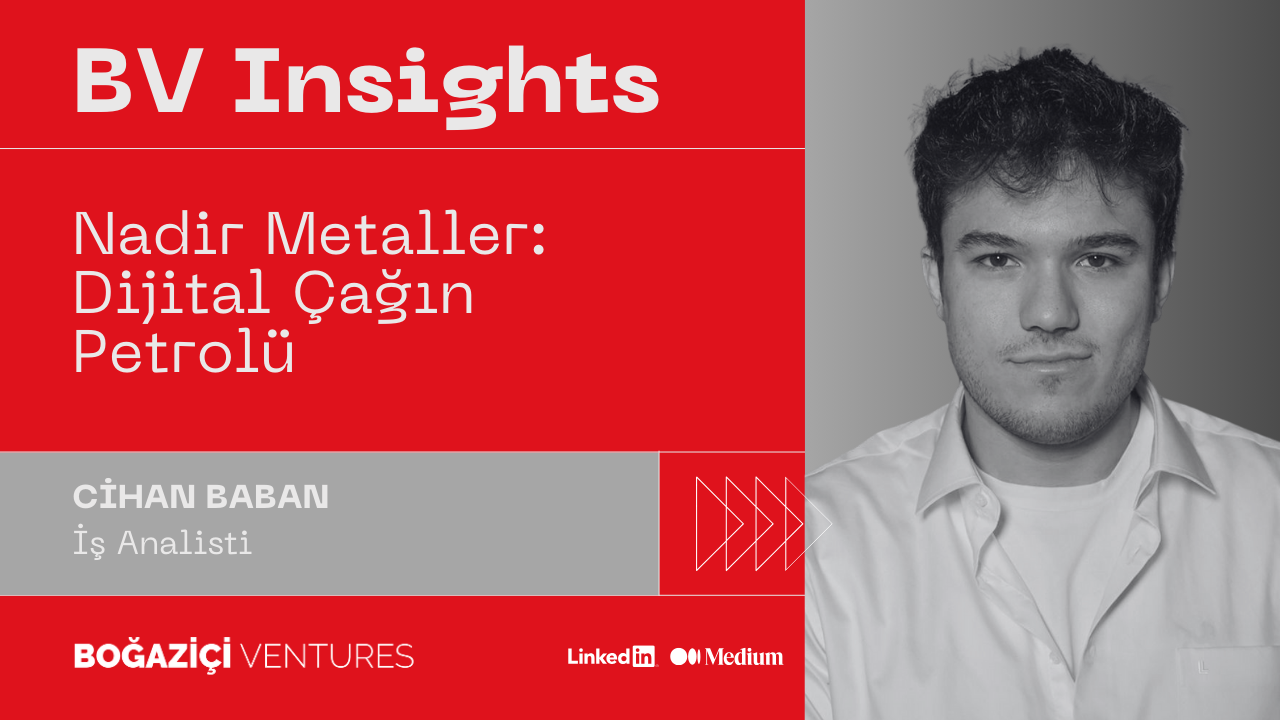Rare Metals: The Oil of the Digital Age
In today’s era of rapid digitalization and energy transition, a seemingly silent yet highly influential group of resources is shaping the fate of world economies: rare earth elements (REEs). This group consists of 17 metals—15 lanthanides along with scandium and yttrium. While they are not technically “rare” in the periodic table, their occurrence in economically viable concentrations is extremely limited. This scarcity makes them one of the most strategic building blocks of modern technological infrastructure.

In today’s era of rapid digitalization and energy transition, a seemingly silent yet highly influential group of resources is shaping the fate of world economies: rare earth elements (REEs). This group consists of 17 metals—15 lanthanides along with scandium and yttrium. While they are not technically “rare” in the periodic table, their occurrence in economically viable concentrations is extremely limited. This scarcity makes them one of the most strategic building blocks of modern technological infrastructure.
Why Rare Metals Matter
The value of rare metals is directly tied to the wide range of advanced technology applications they enable. From renewable energy systems and consumer electronics to defense, medical devices, and “invisible technologies” embedded in daily life, these elements are indispensable.
Another reason for their strategic importance lies in geopolitical control over supply. Today, China accounts for about 70% of global rare earth production, and nearly 90% of processed products originate from Chinese supply chains. This dominance stems not only from China’s domestic reserves but also from its deep investments in Africa, influence in Southeast Asia, and control over key global trade routes. Moreover, Beijing uses this advantage as both a commercial and political tool. Annual production quotas set by the Chinese government dictate global supply dynamics while reinforcing its power in international markets.
A Strategic Threat to the West
For the United States and the European Union, this poses a serious strategic threat. Digital infrastructure, green energy systems, and modern defense technologies all depend on rare metals. Without diversifying supply away from China, the West’s ability to sustain these transformations remains fragile.
In response, alternative supply strategies are being pursued:
- New mining projects in Canada, Australia, and Vietnam.
- Recycling initiatives to recover REEs from used batteries, electronic waste, and industrial scrap.
While these projects are both environmentally and economically attractive, they are unlikely to offset China’s dominance in the short term.
Environmental and Regulatory Challenges
Rare earth extraction and processing are not only economically complex but also environmentally hazardous. The use of toxic chemicals, solvents, and acidic separation methods often contaminates soil and water. Some ores even contain naturally occurring radioactive materials, creating additional health risks and regulatory burdens. Thus, beyond scaling new technologies, developing more sustainable methods of extraction and processing is critical.
Rare Metals as a Security Issue
In 2025, Donald Trump, upon returning to office, explicitly declared rare metals a matter of “national security.”Supported by technology leaders like Elon Musk, this framing underscored the perception of rare metals as nothing less than the oil of the digital age.
Trump’s hardline stance toward Ukrainian President Zelensky, which on the surface resembled a war-reparations debate, was in reality tied to Ukraine’s significant rare and critical metal reserves. Similarly, Greenland and Ukraine have emerged as high-potential resource hubs, pushing them to the forefront of U.S. geopolitical priorities. While Greenland’s annexation had been floated before, Ukraine appears to be seen as a more immediately accessible strategic target.
The U.S. Challenge and New Opportunities
The United States faces a key structural challenge: its domestic rare metal reserves are limited. Opening new mining sites is both time-consuming and politically contentious due to environmental concerns. Yet for a country determined to secure technological independence, controlling access to these resources has become a necessity.
This has sparked major U.S. efforts:
- Funding and incentives for rare earth exploration and processing.
- Public-private partnerships to reduce reliance on Chinese refining.
- University-led research into next-generation extraction and recycling technologies.
A New Frontier for Investors: Materials Technology
This environment opens a new frontier for investment: materials technologies. Startups and companies working on innovative solutions for rare metal extraction, processing, recycling, and enhanced performance applications are increasingly in focus.
Key areas include:
- Environmentally friendly extraction methods.
- AI-powered mineral exploration systems.
- Recovery of raw materials from waste streams.
- Software platforms for strategic supply-chain security.
Such ventures not only promise strong economic returns but also align with global sustainability and regulatory priorities.
Boğaziçi Ventures & BV Portföy: Launching a Materials Technology Fund
It is no coincidence that Boğaziçi Ventures and BV Portföy are preparing to launch a Materials Technology Fund at the very heart of this global transformation.
Our goal is not merely financial return, but also to:
- Anticipate geopolitical risks.
- Prioritize environmental sustainability.
- Back companies that shape technological advances.
- Build a strong and visionary structure focused on publicly traded materials technology companies.
Because we know: the future of the digital economy rests not only on software but also on the physical infrastructure that makes software possible—rare metals and advanced materials. Control of these strategic resources will play a defining role in shaping economic balances and accelerating technological progress in the years ahead.
Boğaziçi Ventures’ Commitment
For more than a decade, we have worked tirelessly to contribute to Turkey’s technology ecosystem and create long-term value. With our deep expertise and strong business network, we support entrepreneurs in building globally scalable ventures. At Boğaziçi Ventures, we believe in leveraging the power of technology across multiple verticals to deliver sustainable and intelligent solutions.
We invite entrepreneurs to apply for investment meetings with us via [email protected] and become part of our global business network. For more information on our funds, please contact us at [email protected]


